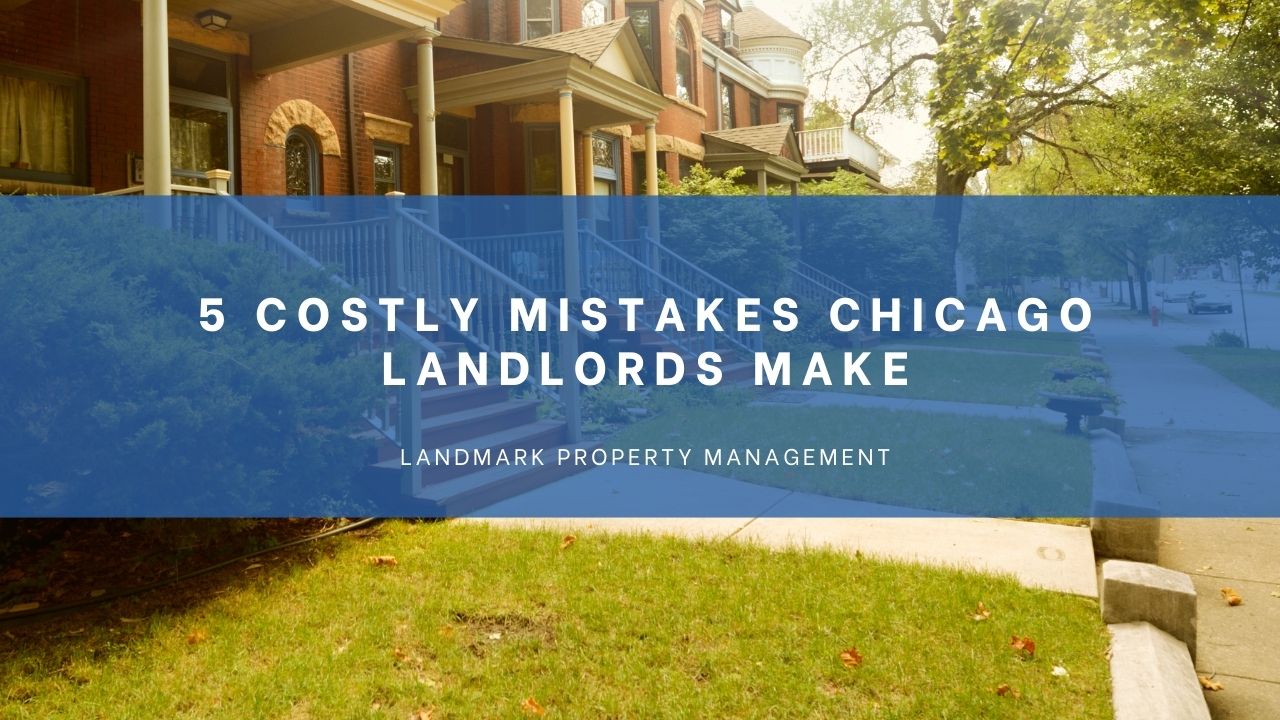Managing rental properties in the Chicago area can be a lucrative business, but it comes with its own set of challenges. Many landlords lose money not because of market conditions, but due to avoidable mistakes.
In this guide, Kristy Marcordes from Landmark Property Management shares the top five costly mistakes landlords make and how to prevent them.
1. Buying the Wrong Property
One of the most common mistakes landlords make is purchasing a property without proper research. In Chicago and its suburbs, location, building condition, and zoning regulations can vary block by block. Underestimating renovation costs or overlooking code violations and zoning restrictions can significantly reduce your return on investment.
For instance, a property may appear affordable, but hidden issues like $50,000 in code violations can quickly turn it into a financial burden. Always run the numbers, check zoning and permits, and budget for inspections. In Cook County, permits and inspections are stricter, while Will County may have varying municipal processes. Being thorough upfront prevents costly surprises later.
2. Skipping Tenant Screening
Tenant screening is essential. Without it, landlords risk placing tenants who pay late, damage property, or create conflicts. In Cook County, the Just Housing Amendment requires a two-step process. First, pre-qualify applicants based on income, credit, and eviction history. Second, evaluate criminal history only after pre-qualification.
Landlords cannot automatically deny tenants due to old convictions. An individualized assessment is mandatory, and criminal records older than three years cannot be considered. Additionally, tenants must have the opportunity to dispute inaccuracies. While these rules do not apply in Will County, landlords must still follow federal and state housing laws. Proper screening protects your investment and ensures compliance.
.jpg)
3. Skipping Property Inspections
Many landlords limit inspections to move-in and move-out periods. Regular inspections throughout the lease are crucial for catching problems early. Landmark Property Management frequently uncovers hidden issues like water damage, pests, or structural concerns during mid-lease inspections, which can otherwise result in repairs exceeding $10,000.
Routine inspections also help document property conditions for disputes and may be required under local laws. Staying proactive reduces long-term costs and protects your investment.
4. Delaying Maintenance Repairs
Ignoring small maintenance tasks is a common pitfall. A slow leak under a sink can escalate into mold, code violations, and tenant complaints. In Cook County, unresolved maintenance issues may result in housing court fines or violations under the Chicago and Cook County Rental Laws.
Even in Will County, many municipalities treat deferred maintenance as a code violation. Addressing issues quickly minimizes liability, keeps tenants satisfied, and maintains property value.
.jpg)
5. Mishandling Tenant Turnovers
Tenant turnover can be expensive. An empty unit leads to lost rental income, and landlords often wait too long to list properties, hoping for the perfect tenant. Efficient turnover is key.
Prepare units for new tenants before the current lease ends and list them immediately to reduce vacancy time. Fast turnovers ensure steady cash flow and keep your rental business profitable.
Conclusion
By avoiding these five costly mistakes, buying without research, skipping tenant screening, neglecting inspections, delaying maintenance, and mishandling tenant turnovers, Chicago landlords can save thousands and protect their investments.
For hands-on support managing inspections, screenings, and maintenance in Chicago and Will County, visit Landmark Property Management or give us a call.






.png)


